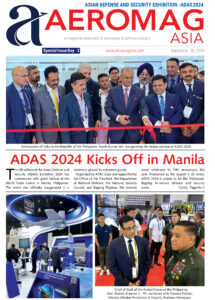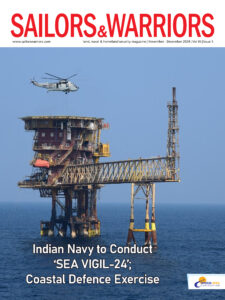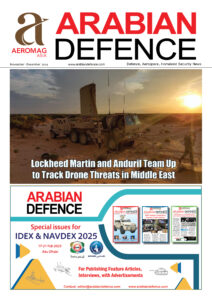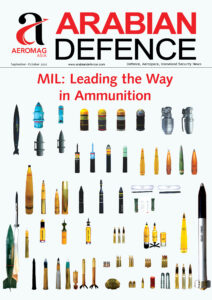
Yakovlev has introduced the Yak-130M, a modernized version of its Yak-130 combat trainer, designed to enhance both combat capabilities and training functions. This upgraded model features air-to-air missiles and high-precision air-to-ground aircraft weapons with satellite and laser guidance systems, transforming it into a versatile light fighter while retaining its training role. With prototypes already under construction at the Irkutsk Aviation Plant, the Yak-130M incorporates cutting-edge systems such as the 130R radar and the President-S130 defence suite. This combination of innovations is expected to bolster the Yak-130M’s competitiveness in the global defence market.
In a landmark development for aviation technology, Yakovlev, a prestigious subsidiary of United Aircraft Corporation and part of Rostec, has introduced the Yak-130M, an extensively modernized version of their well-regarded Yak-130 combat trainer. This upgraded model is designed to significantly enhance the combat capabilities of the aircraft while retaining its fundamental training functions. The Yak-130M aims to bolster its international market appeal by offering expanded features and advanced weaponry, marking a significant step forward in the pursuit of versatile and cost-effective military aircraft.
The Yak-130M, denoted with the “M” for “modernized,” represents a major advancement over the basic Yak-130 model. The primary objective behind this modernization is to broaden the aircraft’s combat capabilities and make it a more attractive option in the global defence market. Vladimir Artyakov, Deputy CEO of Rostec State Corporation, emphasized the strategic vision behind the Yak-130M’s development: “We expect that the modernized Yak-130M will arouse the interest, first of all, of our foreign partners who do not plan to purchase heavier and more expensive aircraft. The ideas embodied in the upgraded machine will significantly expand the armament payload compared to the basic Yak-130. In particular, it will additionally include air-to-air missiles and high-precision air-to-ground aircraft weapons with satellite and laser guidance systems. In fact, the aircraft will become a full-fledged light fighter, while maintaining training functions.”
The development of the Yak-130M involved the completion of detailed design documentation as part of an extensive research and development (R&D) project commissioned by the Ministry of Industry and Trade of the Russian Federation. The first prototype of the Yak-130M is already under construction at the Irkutsk Aviation Plant. Andrey Boginskiy, CEO of Yakovlev, outlined the current status and future plans for the prototype: “We have already started assembling the prototype Yak-130M at the Irkutsk Aviation Plant. In total, the plan is to build three prototypes. Part of the technical solutions for the Yak-130M program are practiced on existing prototypes, including the aircraft presented at the forum ‘ARMY-2024.’”
The Yak-130M is designed to accommodate a crew of two, with configurations that can include an instructor-pilot and a cadet in training scenarios or a pilot-commander and a pilot-operator in combat scenarios. The aircraft is powered by two AI-222-25 engines, each providing 2,500 kgf of thrust. It has a maximum take-off weight of 10,290 kg, which includes a weaponry payload capacity of up to 2,500 kg. The Yak-130M can be equipped with up to nine hand-points for weaponry and features a maximum fuel weight of 1,700 kg, supporting a flight range of 1,610 km. With the addition of two external fuel tanks, each holding 450 kg of fuel, the aircraft’s range extends to 2,265 km. The Yak-130M has a service ceiling of 12,500 meters and can achieve speeds up to 0.9 Mach. Its take-off and landing distances are 550 meters and 750 meters, respectively.
In terms of technological advancements, the Yak-130M is equipped with cutting-edge systems that enhance its operational effectiveness. These include the 130R airborne radar unit, the SOLT-130K optical locator station, the “President-S130” on-board defence suite, and the KSS-130 communications unit. These systems collectively contribute to the aircraft’s increased combat and surveillance capabilities.
The basic Yak-130 model, which has already seen service with the Russian Air Force and several countries across Europe, Asia, and the Middle East, provides a solid foundation for the enhanced Yak-130M. This new model not only continues the legacy of its predecessor but also positions itself as a formidable contender in the global market for advanced, cost-effective combat training aircraft.











